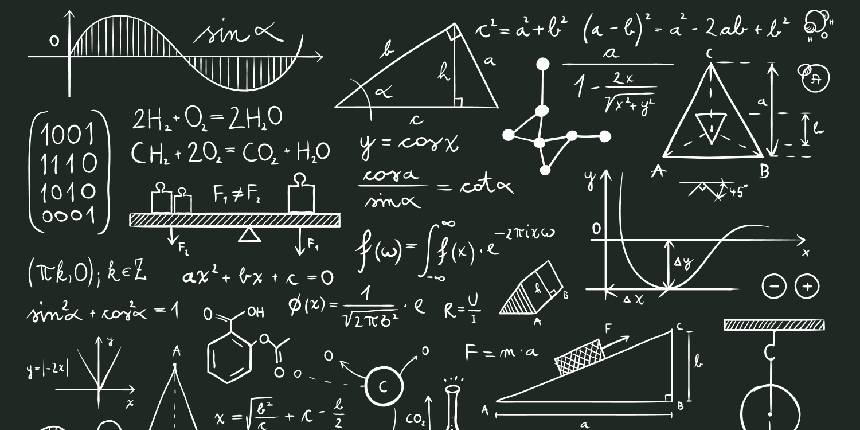Maharashtra Board Class 11 Physics Syllabus 2025-26 (PDF) – Chapter-wise Topics
The Maharashtra Board Class 11 Physics syllabus 2025-26 is a vital resource for learning and strengthening foundational knowledge in the subject. It is designed using clear and easy-to-understand language, making it accessible to all students and helping them grasp complex concepts effectively to perform well in their exams.
Physics Important Formulas for JEE Main/NEET 2027

Class 11 is a crucial stage in every student's academic journey. Building a strong and conceptually sound base in Physics at this level is essential. Studying the Physics Class 11th syllabus Maharashtra board plays a key role in achieving that goal.
The syllabus includes important and engaging chapters such as Gravitation, Laws of Motion, Electrostatics, and Electric Current through Conductors, among many others. These topics not only spark curiosity but also lay the groundwork for advanced studies.
For students aiming to pursue engineering or science-based careers after Class 12, this syllabus covers many fundamental concepts that are highly relevant for competitive exams like JEE, CET, and NEET. Mastering these topics early on will give them a significant advantage.
Download the Maharashtra board 11th physics syllabus:
Also, Read:
Chapters in Maharashtra Board Class 11 Physics Syllabus
Each chapter and topic in the Maharashtra Board Class 11 Physics syllabus is listed here along with its title. The MBHSE Class 11 Physics syllabus includes chapters on Mechanics, Thermodynamics, Optics, Electricity and Magnetism, and Semiconductors.
Let us take a look at the detailed Maharashtra Board Class 11 Physics syllabus and its topics.
| Chapter | Topics |
| Units and Mathematical Tools |
|
| Motion and Gravitation |
|
| Properties of Matter |
|
| Sound and Optics |
|
| Electricity and Magnetism |
|
| Communication and Semiconductors |
|
Maharashtra State Board 11th Books
How to Download the Maharashtra State Board Physics Syllabus
The MSBSHSE class 11 syllabus is available on the official website mahahsscboard.in. Students can visit the official website to download the Maharashtra State Board Class 11 physics syllabus. The syllabus can be downloaded by following the steps given below:
- Visit the website - ebalbharati.in
- Click on Download PDF textbooks in the menu.
- Select the class, medium and subject
- Students can view the list of subjects. Click on physics. The MBHSE physics syllabus for class 11 will appear in the new window. Download to save the syllabus and refer to class 11.
Also, Check:
- Maharashtra State Board Syllabus 2025-26 for Class 9th to 12th
- Best Schools in Maharashtra
- Maharashtra HSC Time Table 2026
- Maharashtra HSC Result 2026
Frequently Asked Questions (FAQs)
Students can download the Maharashtra board 11th Physics syllabus from - mahahsscboard.in or from the links given in the article above.
Links to download the PDF of the HSC Physics syllabus Maharashtra board, along with other subjects, are given in the article above.
Maharashtra board 11th Physics syllabus is provided with extra questions on every topic, which help students to clear their doubts and also the language used is easy to understand for every student.
All the chapters of 11th Physics syllabus Maharashtra board are listed above for the convenience of students.
Questions related to Maharashtra SSC Board
On Question asked by student community
Hello Student,
Check out the Maharashtra SSC question practice papers here in the link below. Get more details on exam pattern, marks distribution, and types of questions in these practice papers. Prepare well by practising these papers to be well-versed with the board examination.
Hello,
you can get the Maharastra SSC Question Papers from the Careers360 website. Practising these papers will helps you to understadn the exam pattern, to improve time management, to identify the important topics, and over all it enhances your exam preparation.
LINK: https://school.careers360.com/boards/msbshse/maharashtra-ssc-last-5-years-question-papers
Hello,
Here you can download SSC Maharashtra board question papers from the mentioned link below:
https://school.careers360.com/boards/msbshse/maharashtra-ssc-last-5-years-question-papers
Hope it helps.
Hello Samarth,
For your class 10th Maharashtra Board Exam, you need to study hard and make to revise regularly to recap easily in your exams. Here are the main subject that being asked in previous years ----- Click Here
These question papers help you get better result in your board
The Maharashtra SSC board conducts examination for 10th grade for subjects-
Maths, English , Science, Hindi, SST and Marathi including other optional subjects depending on the various schooling patterns.
The link below provides last year's PYQ of Maharashtra SSC board in a systematic form by Careers360.
https://school.careers360.com/boards/msbshse/maharashtra-ssc-question-papers
Applications for Admissions are open.
As per latest syllabus. Physics formulas, equations, & laws of class 11 & 12th chapters
JEE Main Important Chemistry formulas
Get nowAs per latest syllabus. Chemistry formulas, equations, & laws of class 11 & 12th chapters
JEE Main high scoring chapters and topics
Get nowAs per latest 2024 syllabus. Study 40% syllabus and score upto 100% marks in JEE
JEE Main Important Mathematics Formulas
Get nowAs per latest syllabus. Maths formulas, equations, & theorems of class 11 & 12th chapters
